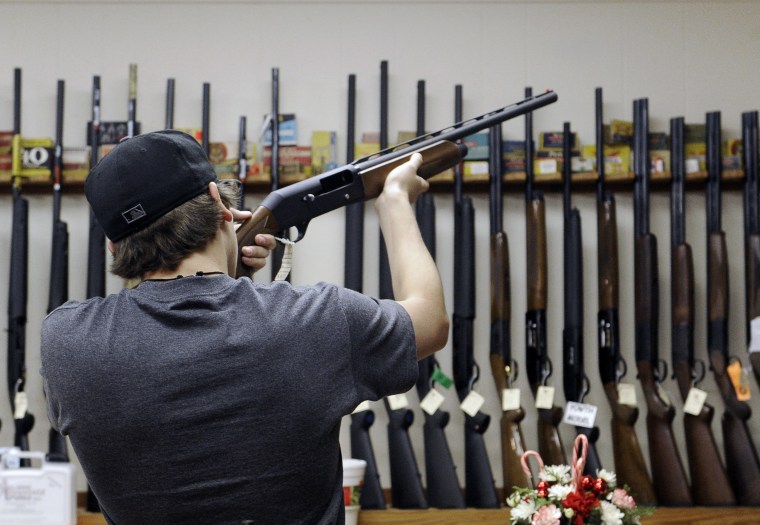States with more gun laws tend to have lower rates of gun-related fatalities, according to a new study released this week.
"It seems pretty clear: If you want to know which of the states have the lowest gun-mortality rates just look for those with the greatest number of gun laws," Dr. Eric W. Fleegler of Boston Children's Hospital told NBC News. Fleegler and his colleagues worked together to analyze data from the Centers for Disease Control between 2007 and 2010 and found that, overall, states with more gun laws typically had fewer deaths. The study led by Boston-based public health researchers calculated the rate of gun fatalities per 100,000 deaths per year and compared it with the average number of gun control laws that state had on the books over the four-year period (to account for new laws or repeals over that time).
The results? States like Massachusetts, California, and New Jersey rank at the top, with more than 20 gun control laws on the books, and have lower rates of gun deaths per every 100,000 fatalities.
Hawaii has the nation's lowest gun fatality rate, and ranks 6th (tied with Maryland) for the most gun laws.
Louisisana boasts the nation's highest gun death rate in the nation (18 per 100,000), and is tied with states like Alaska, Kentucky, and Oklahoma for having the some of the least restrictive gun legislation. All four states have gun death rates above 12.5.
Alabama is an outlier, ranking relatively high on the legislative strength scale (ranking 13th with about 8 laws) but with a gun death rate of 16.3.
The study's researchers emphasized that the correlation they discovered through their analysis is not the same as causation. But it's intriguing that the number of gun laws per state correlates to the number of firearms per household, with fewer guns per household in the states with more laws. The correlation between firearms per household and gun deaths is strong as well, which creates an even starker graph.
"And states that have the lowest gun-ownership rates also have the lowest gun-mortality rates," Fleegler said. "States that try to have gun laws that are meant to be meaningful, they seem to be able to actually have an impact. That’s an important thing to learn from."
Critics of the study argue that it fails to explain or outline specifically which gun laws work. Perhaps the next study will help to illuminate those most effective laws. After years of limitations, President Barack Obama recently lifted the ban on federal gun violence research, freeing up agencies like the CDC to do more work.
